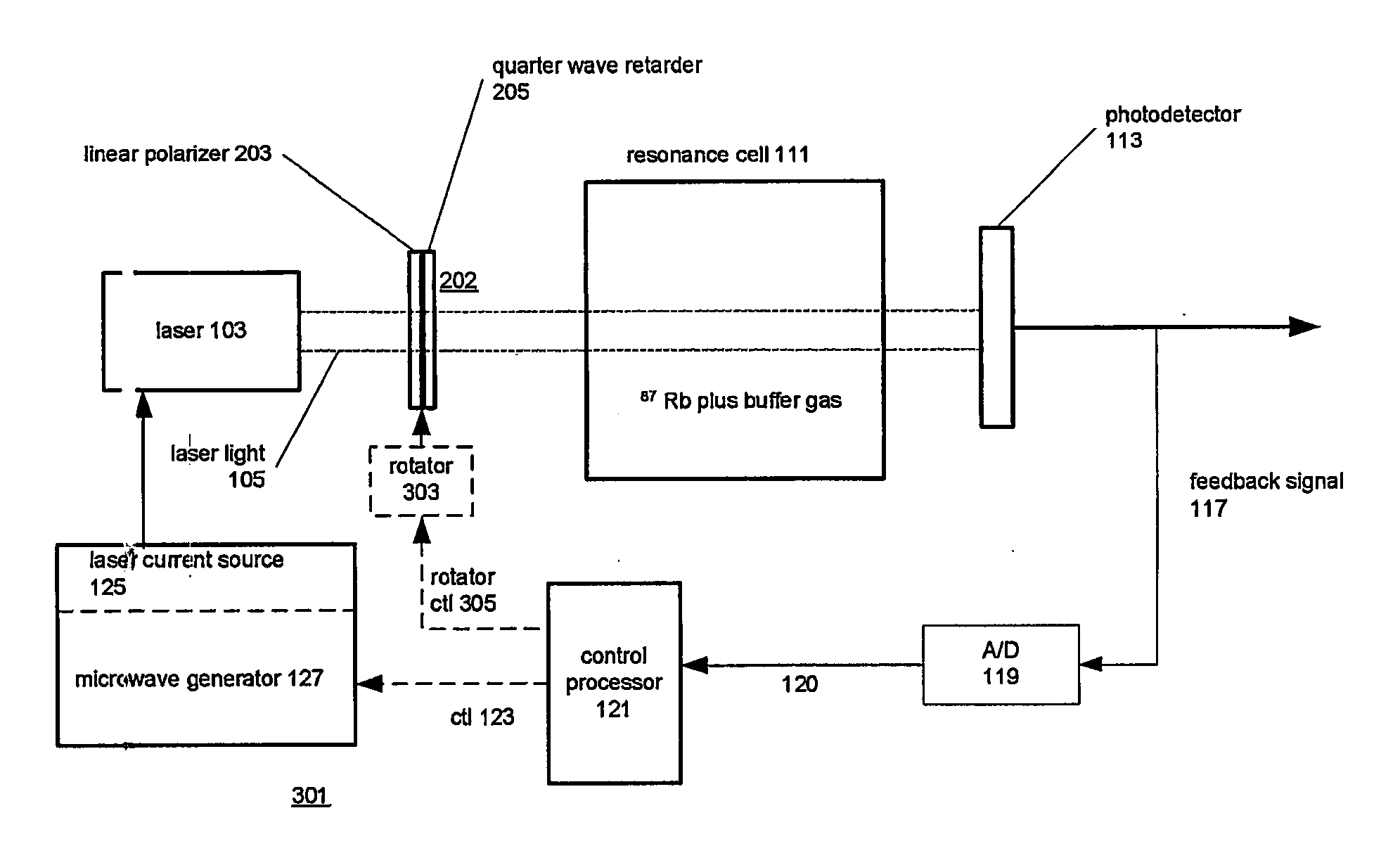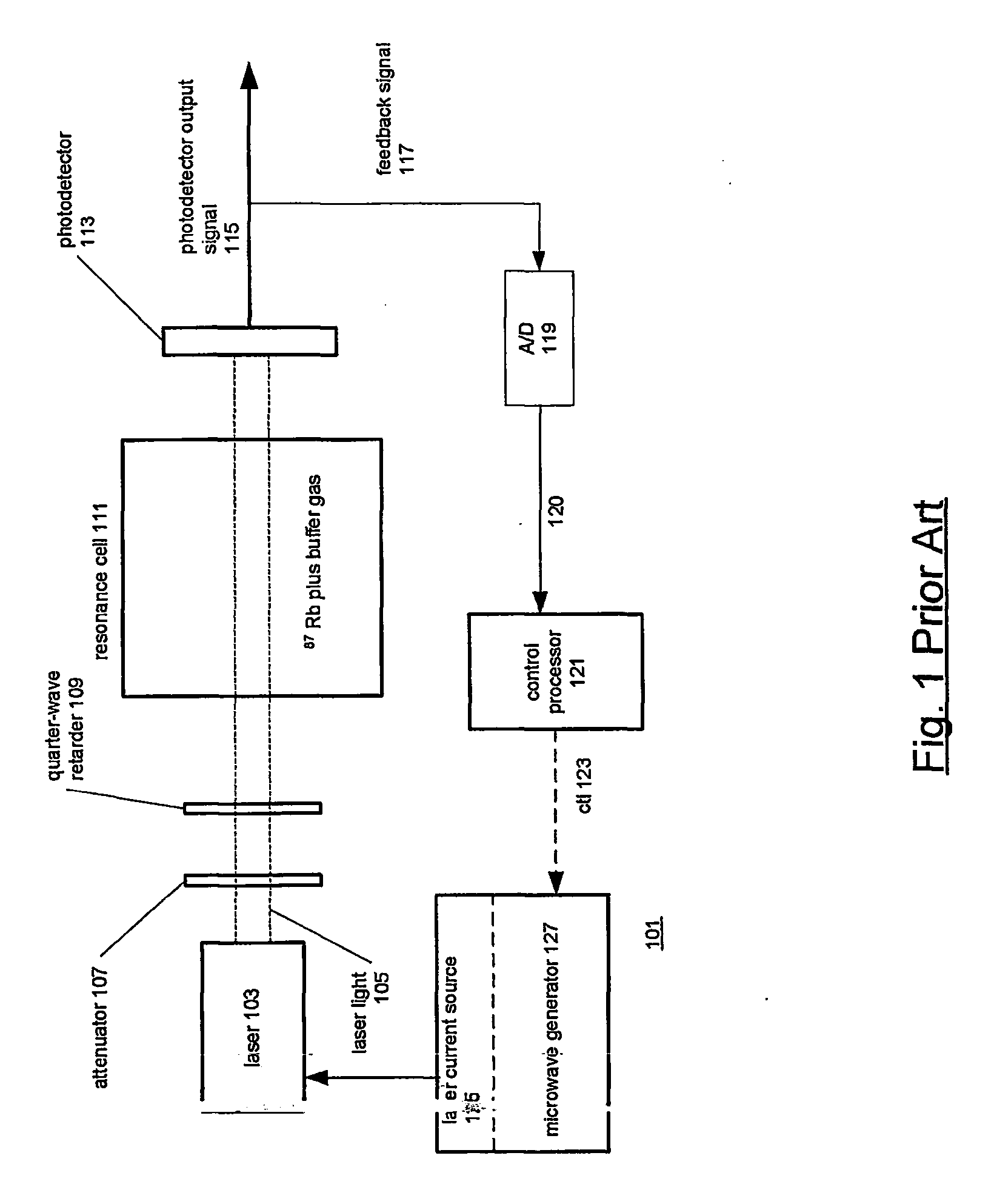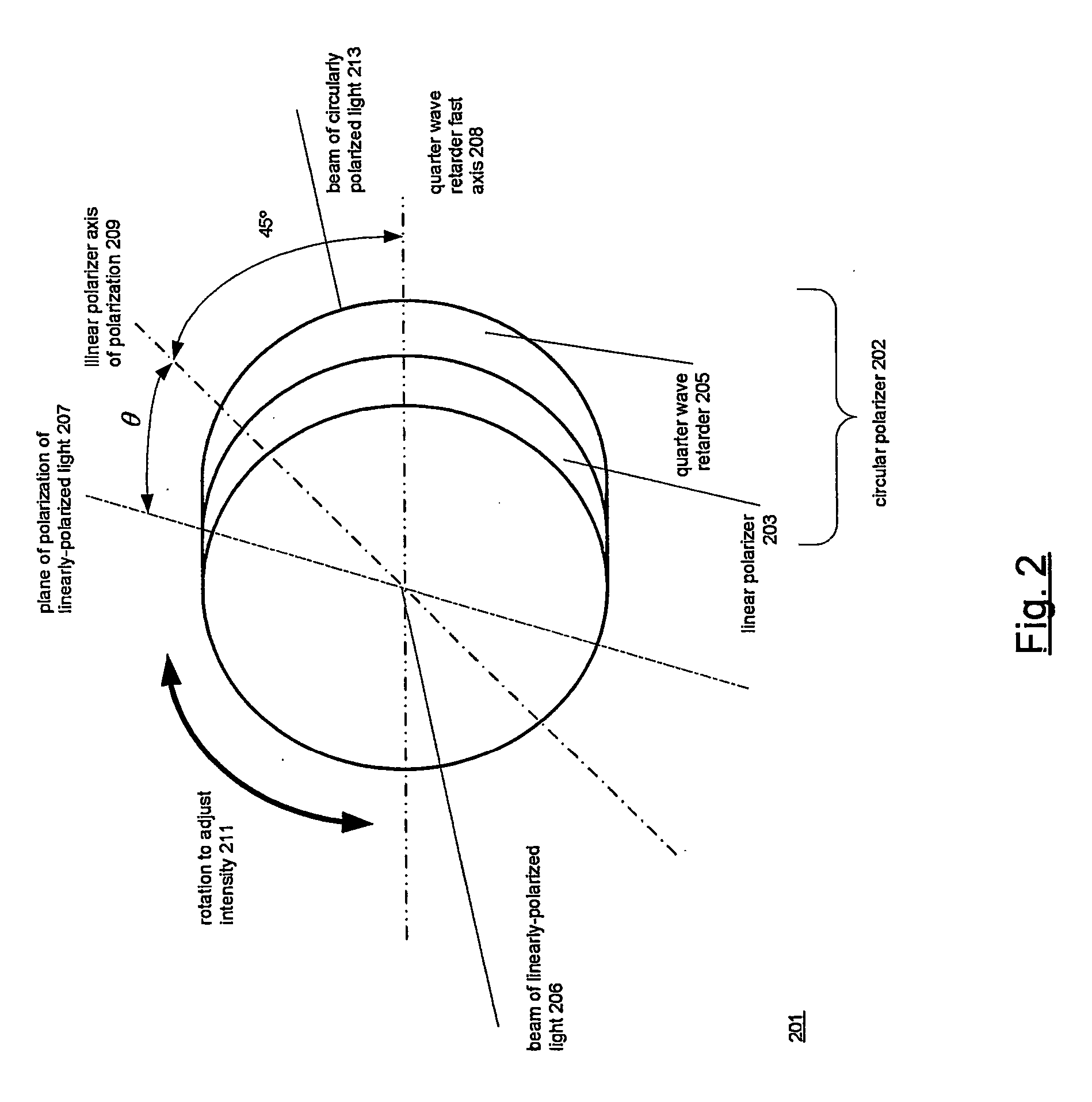Optically excited atomic frequency standard
a technology optical energy, applied in the field of atomic frequency standards, can solve the problems of affecting alignment, occupying a large amount of space, and requiring replacement of components of devices or the addition of calibration components to devices,
- Summary
- Abstract
- Description
- Claims
- Application Information
AI Technical Summary
Benefits of technology
Problems solved by technology
Method used
Image
Examples
Embodiment Construction
[0026] The following Detailed Description will describe a CPT frequency standard employing a rotatable circular polarizer to control the intensity of circularly-polarized light incident on the atomic resonance cell, and will finally disclose experimental results using a circular polarizer in this fashion in the CPT frequency standard.
Using a Circular Polarizer to Control the Intensity of Circularly-Polarized Light: FIG. 2
[0027]FIG. 2 shows at 201 how a circular polarizer 202 may be used to control the intensity of circularly-polarized light. Circular polarizer 202 is made in the usual fashion: a linear polarizer 203 is combined with a quarter wave retarder 205 such that there is a fixed relationship between the axis of polarization 209 and the fast axis 208 of the quarter wave retarder. The linear polarizer and quarter wave retarder may be made of any materials which polarize light in the required fashions. A preferred relationship between the axis of polarization 209 and fast axi...
PUM
 Login to View More
Login to View More Abstract
Description
Claims
Application Information
 Login to View More
Login to View More - R&D
- Intellectual Property
- Life Sciences
- Materials
- Tech Scout
- Unparalleled Data Quality
- Higher Quality Content
- 60% Fewer Hallucinations
Browse by: Latest US Patents, China's latest patents, Technical Efficacy Thesaurus, Application Domain, Technology Topic, Popular Technical Reports.
© 2025 PatSnap. All rights reserved.Legal|Privacy policy|Modern Slavery Act Transparency Statement|Sitemap|About US| Contact US: help@patsnap.com



